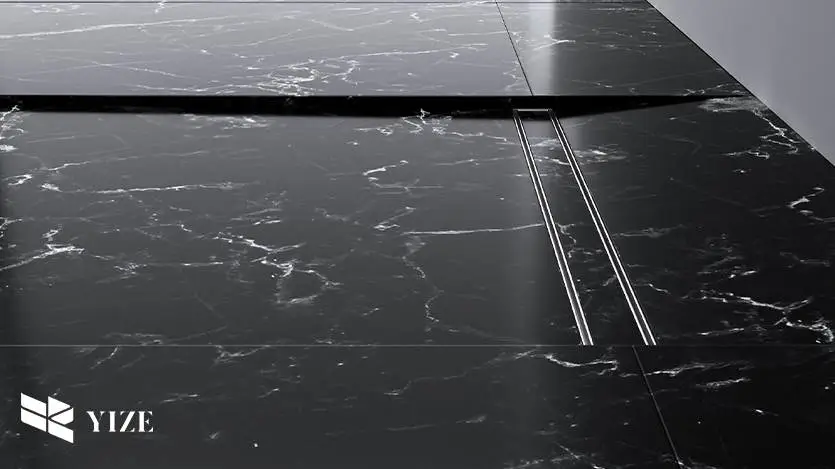When we talk about designing bathrooms, shower drains have changed a lot. Now we have linear drains and trench drains. Before, only big businesses or factories used them. But now, people use them in their homes too. These drains look good and work well in new bathrooms. This guide will help you learn about these drain systems. This way, you can make smart choices for your next bathroom makeover.
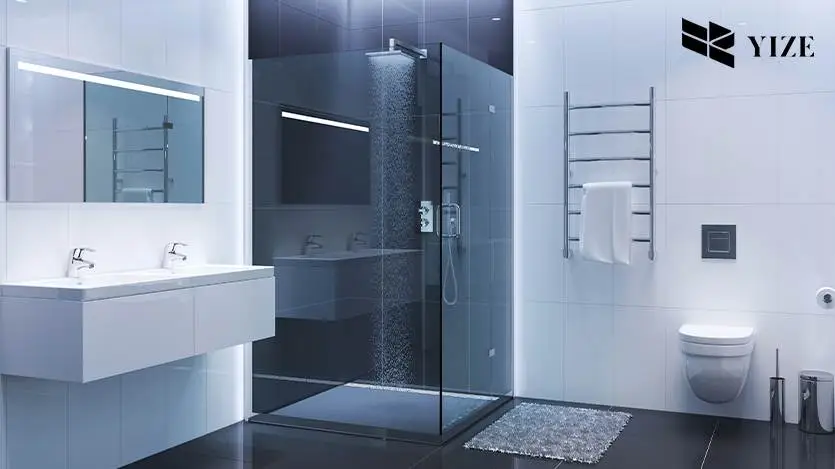
What are Linear Shower Drains and Trench Drains?
Linear shower drains, or trench drains, are a special kind of drain system. They can cover the whole width or length of your shower or even the whole bathroom floor. They’re different from normal drains that are round or square and sit in the middle of the shower floor. Linear drains are long channels that gather and guide water to one outlet, usually at one end of the channel.
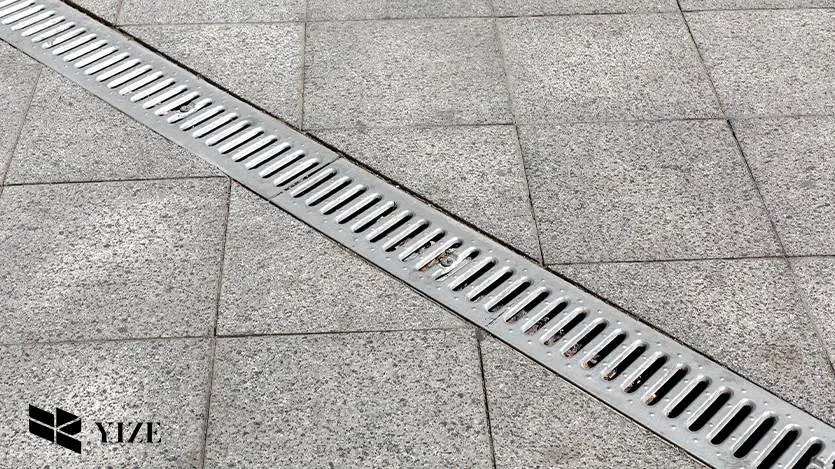
These drains have a simple, clean look and are often a part of the bathroom’s design. They come in various design outlooks. Either hidden under a strong grate or disguised with the same tiles as the floor around them. Thus, making them almost impossible to see.
Key Features of Linear Shower Drains and Trench Drains
Drain Size:
Choosing the right size for your drain depends on two things. One is how big your shower is. The other is how much water your pipes can carry away. In most homes, showers are set up to work with a drain line that’s 2 inches wide. This kind of drain line can manage up to 9 gallons of water every minute.
But what if your shower is bigger? In that case, you might need more drains or a bigger pipe. That way, your drain can handle more water at once. for every 30-inch stretch of your drain channel, a 2-inch drain could be a good fit. If your area is quite large, it wouldn’t hurt to use more than one of these 2-inch drains. If you connect them to a 3-inch pipe, they can handle up to 21 gallons of water every minute (GPM).
Linear drains are really flexible. They come in different lengths, and you can fit them into your space. The shortest standard length is 24 inches. If you need a longer drain, you can either cut them down to the right size or connect multiple pieces together.
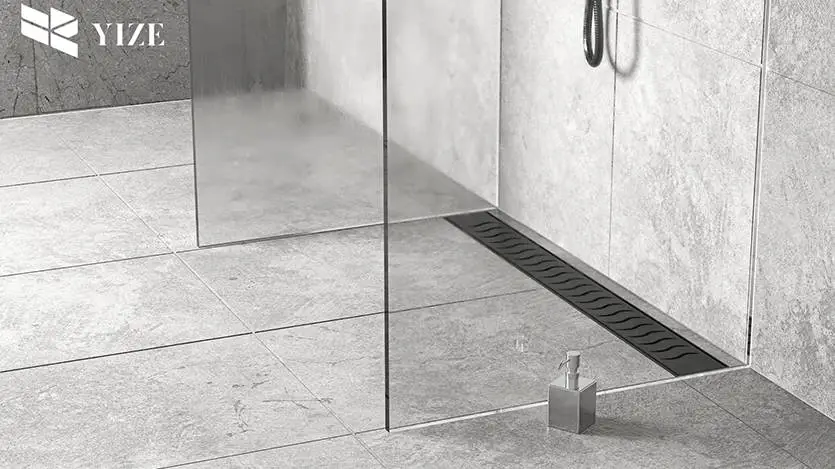
There’s also more than one way for the water to leave the drain. The side outlet option lets you move the water to a different location. For example, you could send it along the top of a flat surface or under a floor to connect with your existing pipes.
Installation options:
Linear drain and trench drain systems are flexible and let you choose from many ways to install them. This depends upon your design preferences and functional needs.
- Across the Room: This means connecting several drain parts to cover the whole room. It’s not as easy as using a ready-made drain because rooms can be of different sizes. For this, you’ll need a special type of drain body and a way to make the shower base waterproof.
- Beside the Wall: Some people like to put the drain right next to the shower wall. This way, you don’t need any tiles behind the drain, and any water that hits the wall will go straight into the drain. This option works well with new ways to waterproof and channels with a built-in edge.
- At the Door: Putting the drain at the shower door helps keep water inside the shower. Whether you have a glass door or a raised edge, having the drain cover the whole doorway can help stop water from spilling out. For this, it’s good to use a wider drain cover with grates, so it can catch lots of water without flooding the room.
- No Barriers: If the floor is flat from the shower to the rest of the bathroom, you might like the no-barriers installation. This lets you have a floor that looks the same across the room. The tiles can look the same in wet and dry areas, but the floor should still slant toward the drain in the shower.
- Middle of the Shower: For a middle drain, the water goes into a square container under the flat or tiled cover, not a long channel. These drains go in the center of the shower, and the floor needs to slant towards it from all sides.
Cover Types
The design of the drain cover is important to think about. These covers block bigger debris and add to the look of your shower. Tiled-in: These covers let you put tiles on top so the drain blends in with the floor.
Grated: Grated covers come in different designs and materials. So, they offer a practical and stylish choice in combination.
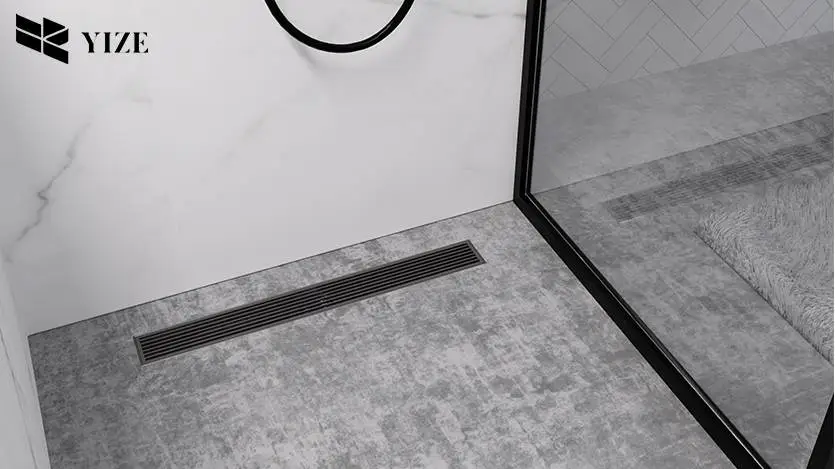
Why Choose Linear Shower Drains and Trench Drains?
Choosing a linear shower drain or trench drain system comes with several benefits:
- Design Flexibility: These drains allow for a more flexible and creative bathroom design. Being able to put the drain anywhere in the shower gives you new ways to set up the room. So, you can use big tiles and different floor materials that wouldn’t fit with a regular drain in the middle.
- Accessibility: Linear drains can be installed flush with the floor, creating a barrier-free shower that’s accessible for people of all ages and abilities. This makes them an excellent choice for universal design and aging-in-place considerations.
- Efficiency: Linear drains can handle a lot of water. They work better than old-style drains. They’re great for showers with lots of water or when you need a certain drain for waterproofing.
- Looks: Linear shower drains can blend in, making your bathroom look neat and modern. They come in many designs and colors to match your bathroom.
Conclusion
Linear shower drains are a new way to get rid of water and design your bathroom. If you know what they do and how they help, you can pick the best one when fixing up your bathroom. Remember, it’s important to set up and take care of your drain the right way. This helps it last longer and work better. Whether you want a sleek look or an easy-to-use shower, linear drain, and trench drain systems could be just right for you.
